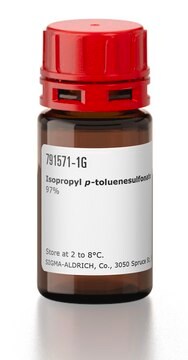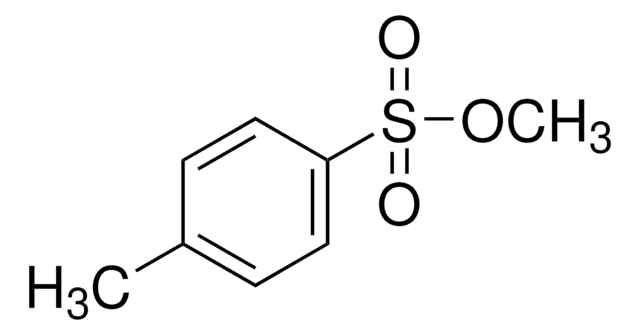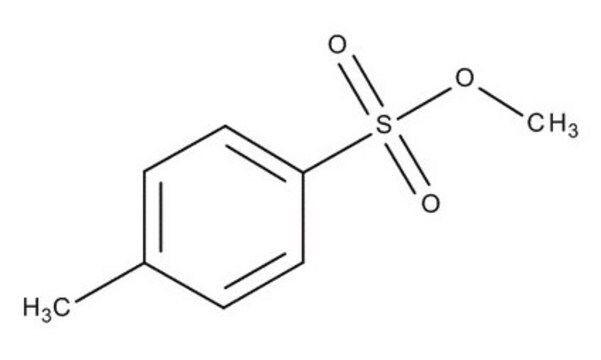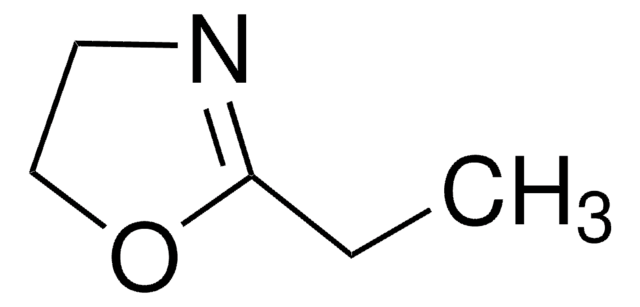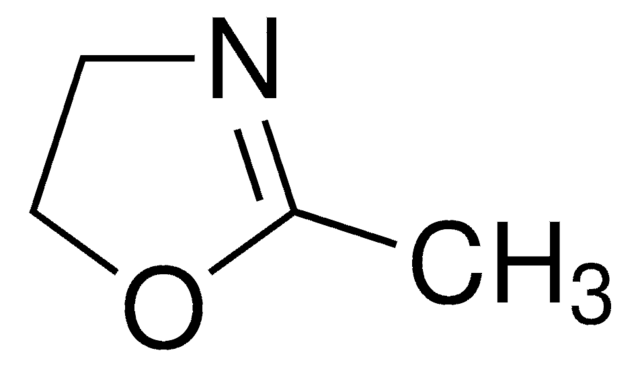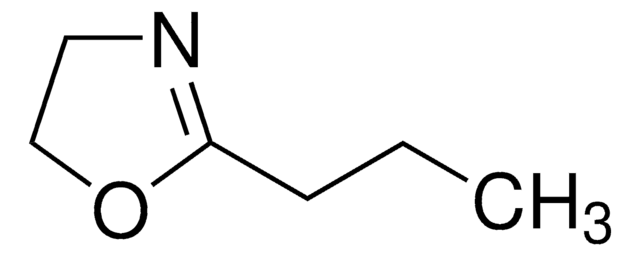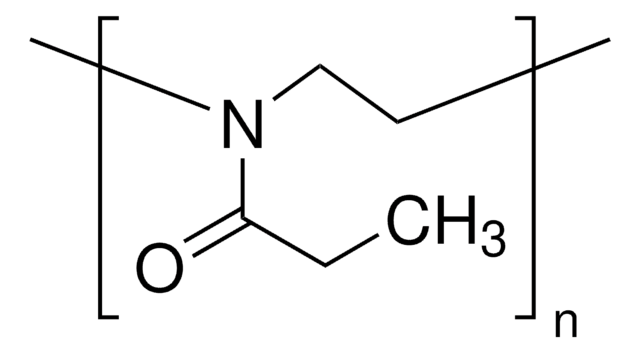158992
Methyl p-toluenesulfonate
98%
Synonym(s):
Methyl p-methylbenzenesulfonate, Methyl toluene-4-sulfonate, Methyl tosylate, Methylp-tosylate
About This Item
Recommended Products
vapor density
6.45 (vs air)
Quality Level
vapor pressure
1 mmHg ( 20 °C)
Assay
98%
form
solid
autoignition temp.
896 °F
refractive index
n20/D 1.5172 (lit.)
bp
144-145 °C/5 mmHg (lit.)
mp
25-28 °C (lit.)
density
1.234 g/mL at 25 °C (lit.)
storage temp.
2-8°C
SMILES string
COS(=O)(=O)c1ccc(C)cc1
InChI
1S/C8H10O3S/c1-7-3-5-8(6-4-7)12(9,10)11-2/h3-6H,1-2H3
InChI key
VUQUOGPMUUJORT-UHFFFAOYSA-N
Looking for similar products? Visit Product Comparison Guide
Related Categories
General description
Signal Word
Danger
Hazard Statements
Precautionary Statements
Hazard Classifications
Acute Tox. 4 Oral - Eye Dam. 1 - Skin Corr. 1B - Skin Sens. 1B
Storage Class Code
8A - Combustible, corrosive hazardous materials
WGK
WGK 2
Flash Point(F)
235.4 °F - closed cup
Flash Point(C)
113 °C - closed cup
Personal Protective Equipment
Certificates of Analysis (COA)
Search for Certificates of Analysis (COA) by entering the products Lot/Batch Number. Lot and Batch Numbers can be found on a product’s label following the words ‘Lot’ or ‘Batch’.
Already Own This Product?
Find documentation for the products that you have recently purchased in the Document Library.
Our team of scientists has experience in all areas of research including Life Science, Material Science, Chemical Synthesis, Chromatography, Analytical and many others.
Contact Technical Service
